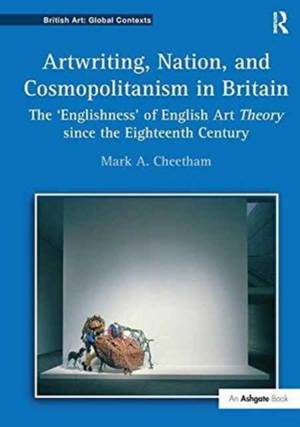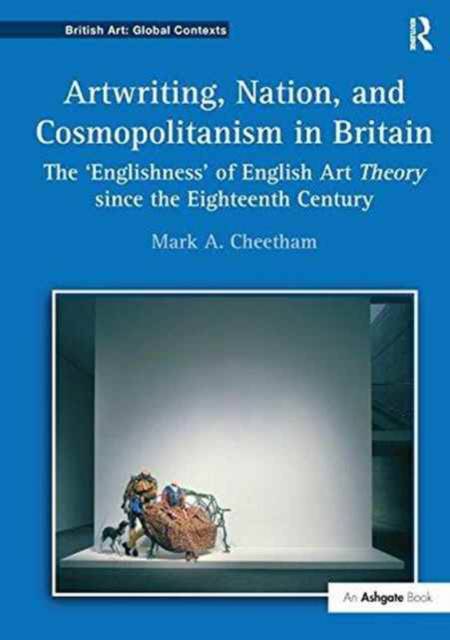
- Retrait gratuit dans votre magasin Club
- 7.000.000 titres dans notre catalogue
- Payer en toute sécurité
- Toujours un magasin près de chez vous
- Retrait gratuit dans votre magasin Club
- 7.000.000 titres dans notre catalogue
- Payer en toute sécurité
- Toujours un magasin près de chez vous
Artwriting, Nation, and Cosmopolitanism in Britain
The 'Englishness' of English Art Theory Since the Eighteenth Century
Mark A CheethamDescription
Arguing in favour of renewed critical attention to the 'nation' as a category in art history, this study examines the intertwining of art theory, national identity and art production in Britain from the early eighteenth century to the present day. The book provides the first sustained account of artwriting in the British context over the full extent of its development and includes new analyses of such central figures as Hogarth, Reynolds, Gilpin, Ruskin, Roger Fry, Herbert Read, Art & Language, Peter Fuller and Rasheed Araeen. Mark A. Cheetham also explores how the 'Englishing' of art theory-which came about despite the longstanding occlusion of the intellectual and theoretical in British culture-did not take place or have effects exclusively in Britain. Theory has always travelled with art and vice versa. Using the frequently resurgent discourse of cosmopolitanism as a frame for his discourse, Cheetham asks whether English traditions of artwriting have been judged inappropriately according to imported criteria of what theory is and does. This book demonstrates that artwriting in the English tradition has not been sufficiently studied, and that 'English Art Theory' is not an oxymoron. Such concerns resonate today beyond academe and the art world in the many heated discussions of resurgent Englishness.
Spécifications
Parties prenantes
- Auteur(s) :
- Editeur:
Contenu
- Nombre de pages :
- 200
- Langue:
- Anglais
- Collection :
Caractéristiques
- EAN:
- 9781138254534
- Date de parution :
- 19-10-16
- Format:
- Livre broché
- Format numérique:
- Trade paperback (VS)
- Dimensions :
- 175 mm x 246 mm
- Poids :
- 452 g







